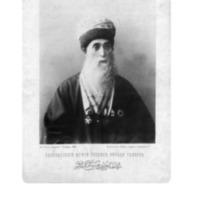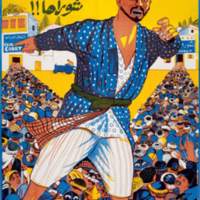Browse Exhibits (2 total)
Russia: The Counterinsurgency State
Stephen Blank is Senior Fellow at American Foreign Policy Council
February 2017
The current war in the North Caucasus, in historical perspective (along with the ongoing war in Ukraine), represent the latest in an apparently unending centuries-long set of struggles over imperial “space” in and around Russia. Therefore the study of these wars sheds new light on older practices and paradigms and vice versa. Looking backward as well as forward allows us to see what has worked and what has failed in Russian counterinsurgency (COIN). Specifically, here we intend to reveal these ongoing paradigms in Muslim areas of the USSR, e.g. Central Asia and the North Caucasus by examining those practices of the 1920s in the light of the contemporary war in Chechnya that Moscow won but also in the light of the current struggle in the North Caucasus where no resolution appears in sight.
Religious Boards of Transcaucasian Muslims in the Russian Empire, 19-20th centuries

An anthology of documents reflecting the process of Islam’s evolution in the Russian Empire, in particular its institutionalization in the Transcaucasian provinces. They were drawn from the collections of the Central Historical Archives of Georgia (TsIAG) and the State Historical Archives of the Republic of Azerbaijan (GIAAR). The anthology consists of three sections. The first one contains drafts of the “Statutes” on governance of the Transcaucasian Muslim clergy and the relevant instructions and rules. The second section is based on statistical materials regarding the number of Muslim “parishes,” mosques and clergymen and data on changes in the personnel of the Religious Boards. The third one presents ritual texts and lists of religious writings that served as a guide for the clergy in resolving civil cases.
Featured Exhibit
Nation Building as Identity-Based Conflict (Teaching Module)

This teaching module examines aspects of the National Delimitation Project in Soviet Central Asia in the 1920s and 1930s. Using...